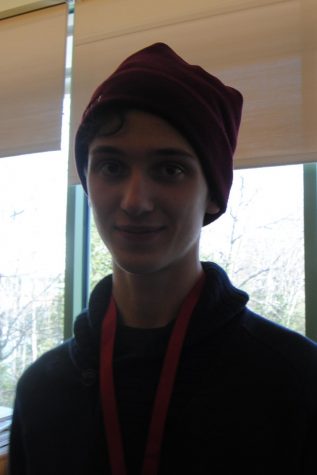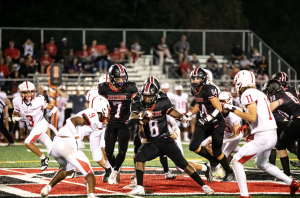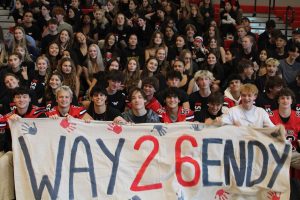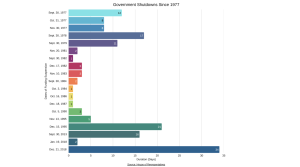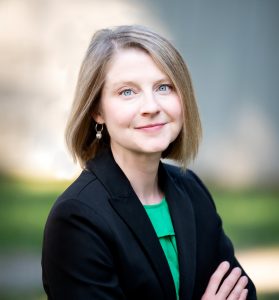Religion in schools: It’s complicated
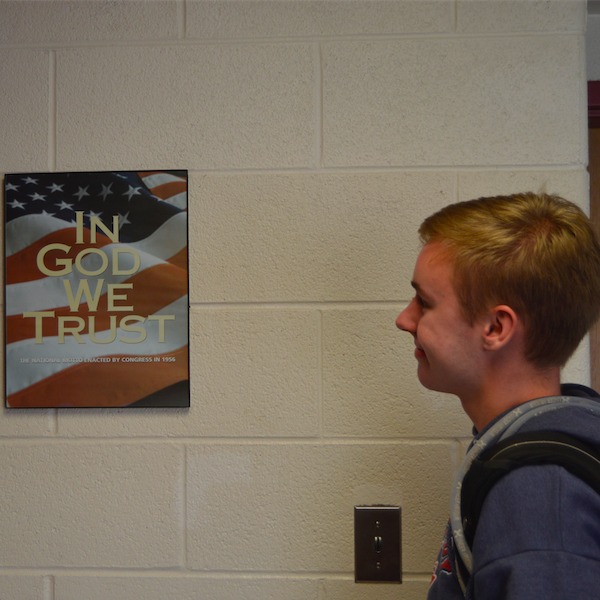
November 18, 2016
“It is the policy of the Falls Church City Public Schools to remain neutral in matters of religion,” said the FCCPS School Board Policy Section 6.8.
Possibly due to the ambiguous nature of this statement, however, many students and teachers at GMHS have chosen to personally interpret this in different and sometimes contradicting ways.
George Mason has not directly engaged in the prominent landmark cases and court rulings that have shaped the state and national religious policy for religion in schools. Courts have become involved in states such as Ohio (Freshwater vs Mt Vernon City School District) and Georgia (Selman vs Cobb County School District). However, to many students and teachers, the echoes and effects of these cases and decisions are still important.
For example, in the 1990 “Board of Education of Westside Community Schools v. Mergens” landmark case, public schools were required to give religious groups, such as the Fellowship of Christian Athletes at GMHS, the same access to facilities that other groups had.
Another example, in the 1985 case “Edwards v. Aguillard” it was ruled that public schools could not be required to teach Creation Science as an alternative to Evolution, which protects our state and district’s curricular decision to teach evolution as the only origins of life program.
These decisions, and many others, impact the way education, with regard to the autonomous rights of students (and parents), works at GMHS. The outline of the school’s religious policy contains nine pages of interpretations and regulations pertaining to these cases, some of which are unique to the school, or at least not regulated by the state specifically.
For example the state regulates that students “have the right to pray quietly except when actively engaged in school activities,” (Tinker vs Des Moines) yet each school district is given certain freedom to interpret what those school activities are.
FCCPS interprets this as, “students may not pray aloud during the school day except during scheduled intermissions.”
Considering religion is a large identifying factor for many students, and many attend local churches such as the Falls Church Anglican, students with whom the Lasso spoke did agree that it is important to understand school religious policy, yet students also said they were not aware of the policy or its location, and were mostly unable to find the policy online.
Both parts of the policy, the 2002 instructional version and the 2011 policy section, are located on the school board section of the FCCPS website, alongside a list of every policy.
“The current online policy is accessible enough for students,” Assistant Principal Kevin Clark said. “But we are open to students who want to know more about religious policy in our school.”
Some students expressed frustration that it is difficult to locate. Freshman Cruz Alvarez attempted to access the policy documents and failed.
“I never would have found both policy documents without help,” Alvarez said.
“The policy seems to be legalese and not written in a way easily accessible to students,” said biology teacher Ms. Goss. “It would be helpful for the policy to be located where students would have easy access to it, and in a location where many students are exposed to it, such as the GMHS website, or student handbook.”
Students have the right to be excused from religiously-objectionable lessons. Section 6.8 of the school board policy interprets this by stating that “parents may opt their students out of Family Life Education Program.”
Students and teachers had mixed opinions on the policy. According to special education teacher Mr. Denny Linhorst, in most cases, no one should be able to opt out of classes at GMHS, because all of the classes are in the curriculum for a reason.
“The classes currently being taught shouldn’t be optional because of people’s’ personal beliefs, because they are important to get an unbiased understanding of the world and science,” Alex Wallace, a freshman said.
Mr. William Stewart and Ms. Martina Goss, both biology teachers, said that in their classes students have questioned the teaching of evolution. The issue has never left the classroom level, though.
“I have had some students bring that issue up,” Stewart said. “But they didn’t protest that much or refuse to take the test.”
“I don’t talk about creationism when I’m talking about the origins of life, and it shouldn’t be taught in science class because those claims are not testable,” Stewart said. “(However), I believe that science and religion are nonoverlapping areas, which means someone can believe or agree with one and still understand or apply the other.”



